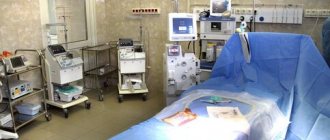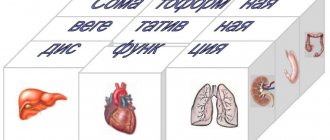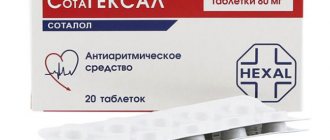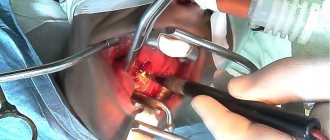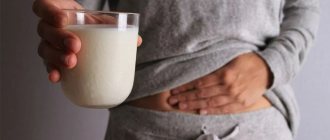Often we are faced with poor health and try to understand what is the cause of this condition. And when many laboratory and instrumental tests have already been carried out and nothing has been found, we think: “What could this be connected with? Because I really feel bad.” If there are no organ damage, it’s time to consult a neurologist. Autonomic dystonia syndrome, autonomic failure, autonomic crises are neurological diseases that we will touch on in this article.
Autonomic dystonia syndrome
Autonomic dystonia syndrome is all forms of disturbance of autonomic regulation, most often secondary manifestations of various pathologies.
There are 3 forms of SVD:
- psychovegetative – a feeling of tightness in the chest, changes in heartbeat, stomach pain, frequent vomiting, headache, dizziness, neuralgia of various locations, problems with urination, increased sweating, changes in the menstrual cycle, feeling cold;
- peripheral autonomic failure syndrome - (see autonomic failure);
- angiotrophalgic - vascular (marbling of the skin, redness, pallor, cyanosis, feeling of numbness, tingling), trophic (peeling and thinning of the skin, spots of pigmentation or depigmentation, ulcers, more often in the area of the hands and feet, brittle nails) and painful manifestations (paroxysmal prolonged pain , having a shooting, aching, burning, tingling, etc. character.
Causes
The development of autonomic neurosis is not caused by any single cause; it is usually the result of several factors:
- Traumatic brain injury with brain damage;
- Chronic fatigue, stress and depression;
- Consequences of certain infectious diseases;
- Wrong lifestyle;
- Mental and physical stress;
- Psychological trauma;
- Individual predisposition to neuroses.
Like many mental illnesses, this disorder often originates from a person’s childhood. Psychological trauma and shock experienced at an early age can develop into a serious illness after a few years. Moreover, not only people from disadvantaged families are susceptible to vegetative neurosis, but also ordinary children who lack the attention of their parents.
At an early age, monitoring the child’s psychological state is very important, since it is at this time that the foundation for adult life is laid. However, many parents, unfortunately, do not attach importance to this, accepting the child’s whims and tantrums as one of the manifestations of childhood.
When a person grows up, other factors influence his psycho-emotional state. Conflicts within the family, problems at work, social injustice - all this can cause autonomic neurosis.
Sometimes in adults, neurosis is caused by hormonal changes in the body, this is especially often observed in women during pregnancy. Also, the psychological state is affected by addiction to alcohol, drugs (and any poisoning in general), poor lifestyle or poor environment.
Autonomic failure
Autonomic failure is a syndrome associated with impaired innervation of internal organs, blood vessels and endo- and exocrine glands.
In most cases, it is a progressive autonomic failure. In turn, MNV includes primary violations:
- idiopathic orthostatic hypotension;
- some hereditary and acquired diseases of the nervous system (multiple system atrophy, hereditary sensory-vegetative polyneuropathy)
Secondary violations include:
- for endocrine system disorders (diabetes mellitus, thyroid disease);
- for systemic and autoimmune diseases;
- for metabolic disorders;
- with paraneoplastic syndrome;
- for infectious diseases (HIV, leprosy, herpetic infections, etc.).
Various symptoms may occur:
- from the cardiovascular system: tachycardia at rest, orthostatic fainting, arterial hypertension in the supine position;
- from the respiratory system: sleep apnea, involuntary attacks of suffocation;
- from sweating: hypo- and anhidrosis, increased sweating;
- from the gastrointestinal tract: constipation, diarrhea, nausea, vomiting, anorexia;
- from the urinary system: urinary disorders, erectile dysfunction.
Diagnosis of this disease is carried out by physical examination, checking neurological status and drug tests.
Symptoms
Autonomic neurosis has many symptoms - and this, on the contrary, makes it difficult to diagnose. The most pronounced signs of diseases of the genitourinary, cardiovascular and digestive systems of the body. In addition, the patient may experience severe headaches and sudden changes in blood pressure; pain in muscles and joints is even less common.
Other symptoms include chronic fatigue, which does not go away even in the absence of high physical activity and good rest. People suffering from autonomic neurosis get tired quickly, do not tolerate sharp sounds well, and often become irritated at the slightest provocation. This condition is isolated into a separate disease, which is called asthenic syndrome.
In addition, autonomic neurosis is distinguished by several signs that usually do not correspond to most diseases:
- Deterioration of the condition of the skin, hair and nails; muscle atrophy, the appearance of trophic ulcers;
- Changes in the skin: increased secretion of sweat and sebum, peeling, appearance of age spots, etc.;
- Periodic stool disorders, lack of oxygen, disturbances in the functioning of the gallbladder;
- Various allergic reactions;
- Hypochondria, which is characterized by increased suspiciousness and suspicion of illness, as well as fear at the slightest ailment;
- Fears without any reason, and patients realize their groundlessness, but cannot resist them.
Disturbances in the functioning of the heart muscle, indicating autonomic neurosis, cannot be treated with medications, since they are not caused by diseases of the internal organs. Such pains are called false. Despite the fact that they do not talk about heart disease, their occurrence is very unpleasant and painful for a person. The same applies to pathologies of other organs and systems.
Get advice anonymously and free of charge
Our specialist will call you within 5 minutes, leave a request
If you feel pain in one or another part of your body, do not self-medicate. It is possible that your organs are healthy, and with your medications you will harm the body. To determine the cause of the pain, consult a doctor.
Signs of autonomic neurosis in most cases do not appear individually. To accurately diagnose the disease, the doctor must conduct a comprehensive examination of the patient. Only after receiving the results of all tests and observations can appropriate treatment be selected.
Vegetative crisis
Autonomic crisis (panic attack) is a series of clinical manifestations characteristic of emotional disorders and disorders of the autonomic nervous system, depending on the predominance of sympathetic and/or parasympathetic innervation. The obligatory presence of anxiety, a feeling of fear (even fear for one’s life), although there is no visible threat, fear of going crazy, harming loved ones or oneself.
Vegetative crises are divided into:
- hyperventilation crisis - rapid breathing, feeling of lack of air, difficulty breathing. Fear of loss of consciousness or death. There is also tension in the muscles of the forearm and hand, legs and feet. It is important to note that the attack may end in fainting
; - vagotonic crisis - rapid heartbeat, difficulty breathing, sweating, arterial hypotension, redness of the facial skin, disruption of the gastrointestinal tract, and can also result in fainting. A crisis can be provoked by being in a stuffy room, during fasting, intense exercise, or anxiety;
- mixed crises combine the above symptoms, which can appear in turn.
It is important to carry out differential diagnosis with somatic diseases: hypo-, hyperthyroidism, diabetes mellitus, pheochromocytoma, heart rhythm and conduction disorders, gastritis, peptic ulcer, epilepsy, neuroendocrine tumors.
Prevention of the development of autonomic disorder
The patient can slow the progression of symptoms by taking care of his health by adhering to the following recommendations:
- Monitor your blood glucose levels regularly if you have diabetes;
- Avoid drinking alcohol and smoking;
- Follow your doctor's recommendations carefully if you have an autoimmune disease;
- Monitor your blood pressure levels;
- Exercise regularly;
- Eat a nutritious and balanced diet, watch your weight.
Let's sum it up
— Alexander Ivanovich, what could you advise patients with vegetative dystonia?
Imagine a person who has been feeling very bad for many years in a row, goes to doctors, but no medicine helps. In Soviet times, such patients were called “functional patients”; they were never taken seriously because examinations did not reveal any pathology. Our clinic can help these people understand the causes of their illnesses, and then help get rid of them. So, if no one can help you, come to our center!
The source of all diseases
It often happens that a person feels sick, goes to doctors, does many examinations, but no one can diagnose him. Why is this happening? As medical practice shows, the symptoms of various diseases often hide one thing - vegetative dystonia. Many people have heard about this disease, but few know anything specific.
Photo: kuprevich / freepik.com
We talked about why vegetative dystonia is dangerous, how to identify it and how to treat it with Candidate of Medical Sciences, doctor of the highest category, medical director Alexander Ivanovich Belenko .
Sources
- Draskau MK., Rosenmai AK., Scholze M., Pedersen M., Boberg J., Christiansen S., Svingen T. Human-relevant concentrations of the antifungal drug clotrimazole disrupts maternal and fetal steroid hormone profiles in rats. // Toxicol Appl Pharmacol - 2021 - Vol - NNULL - p.115554; PMID:33910022
- Gürler EB., İriboz E., Kaya ÖTÇ., Türkaydin D., Öveçoğlu HS. Acute dental pain elevates salivary oxytocin in women: a risk factor during pregnancy. // Gen Dent - 2021 - Vol69 - N3 - p.73-77; PMID:33908883
- Pérez Corral O., Danet Danet A. . // Gac Sanit - 2021 - Vol - NNULL - p.; PMID:33906792
- Olmos-Ortiz A., Olivares-Huerta A., García-Quiroz J., Zariñán T., Chavira R., Zaga-Clavellina V., Avila E., Halhali A., Durand M., Larrea F., Díaz L. Placentas associated with female neonates from pregnancies complicated by urinary-tract infections have higher cAMP content and cytokines expression than males. // Am J Reprod Immunol - 2021 - Vol - NNULL - p.e13434; PMID:33905581
- Santymire RM., Adkin A., Bernier D., Hill B. Validating the use of fecal glucocorticoid metabolite analysis to assess the adrenocortical activity of the zoo-housed Sichuan takin (Budorcas taxicolor tibetana). // Zoo Biol - 2021 - Vol - NNULL - p.; PMID:33905549
- Archiza B., Leahy MG., Kipp S., Sheel AW. An integrative approach to the pulmonary physiology of exercise: when does biological sex matter? // Eur J Appl Physiol - 2021 - Vol - NNULL - p.; PMID:33903937
- Bartolone S., Mayrovitz HN. Intrahepatic Cholestasis of Pregnancy: Role of Baby's Sex on Itch Severity and Bile Acid Levels. // Cureus - 2021 - Vol13 - N3 - p.e14089; PMID:33903845
- Luo M., Jiang YL., Yao FX., Tian QJ. . // Zhonghua Fu Chan Ke Za Zhi - 2021 - Vol56 - N4 - p.251-256; PMID:33902236
- Song T.Y., Deng J., Fang F., Chen CH., Wang XH., Wang X., Zhuo XW., Dai LF., Wang HM., Tian XJ. . // Zhonghua Er Ke Za Zhi - 2021 - Vol59 - N5 - p.387-392; PMID:33902223
- Karim SI., Irfan F., Saad H., Alqhtani M., Alsharhan A., Alzhrani A., Alhawas F., Alatawi S., Alassiri M., MA Ahmed A. Men's knowledge, attitude, and barriers towards emergency contraception : A facility based cross-sectional study at King Saud University Medical City. // PLoS One - 2021 - Vol16 - N4 - p.e0249292; PMID:33901184


